Podcast 160: Matt Giovanisci On Lasso And The Hope to Achieve $15,000 Per Month Residual Income
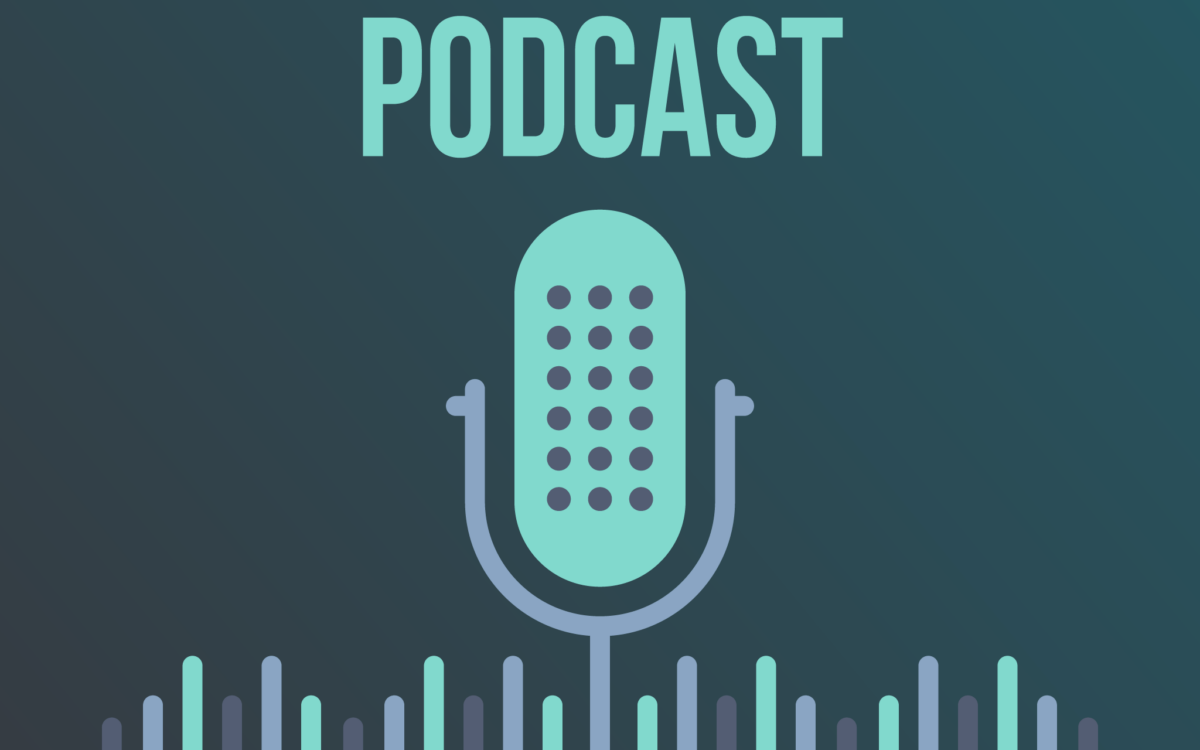
When you buy something through one of the links on our site, we may earn an affiliate commission.
Today, I’ve got a returning guest. Matt Giovanisci from moneylab.co is back, and we talk about quite a few things. If you remember the last interview we did, which actually, as I look back, was an entire year ago, which is really hard to believe.
We dove into a lot of his SEO tips and how just writing great content, trying to have a little bit better content, and specifically not doing a lot of link building has led to a lot of success for Matt with his swimuniversity.com site.
Today, we talk about a little bit more about Swim University and specifically, his dive into using YouTube and how his YouTube videos are doing quite well. But then we spend the bulk of the interview talking about his new software product called Lasso.
Lasso is a product that manages your affiliate links. Specifically, it works well with Amazon affiliate links, although it works for any affiliate links. It helps you to better monetize your site and also has really cool product boxes that you can insert into your post that will help you sell more Amazon affiliate products.
You can click here to try out Lasso on your site and boost your income.
Mentioned On The Podcast
- MoneyLab.co (Matt's site on making income online)
- SwimUniversity.com
- Lasso (Matt's product to boost your affiliate income)
- Matt's Youtube channel
- Rakuten
To get in touch with Matt, follow him on his Youtube channel or follow his story, experiments, and projects at MoneyLab.co
Full Transcript
Spencer: Hey, everyone. Welcome back to the Niche Pursuits Podcast. I’m your host, . Today, I’ve got a returning guest. Matt Giovanisci from moneylab.co is back, and we talk about quite a few things. If you remember the last interview we did, which actually, as I look back, was an entire year ago, which is really hard to believe.
We dove into a lot of his SEO tips and how just writing great content, trying to have a little bit better content, and specifically not doing a lot of link building has led to a lot of success for Matt with his swimuniversity.com site. Today, we talk about a little bit more about Swim University and specifically, his dive into using YouTube and how his YouTube videos are doing quite well. But then we spend the bulk of the interview talking about his new software product called Lasso.
Lasso is a product that manages your affiliate links and specifically, it does work well with Amazon affiliate links, although it works for any affiliate links. It helps you to better monetize your site and also has really cool product boxes that you can insert into your post that will help you sell more Amazon affiliate products—a product box for the product you’re selling on Amazon—really cool looking, with a nice button, and can help you monetize those posts. It’s a cool product. If you’re interested in checking it out, you can use my affiliate link at nichepursuits.com/lasso.
Matt comes on and we dive into how he built this software product, how he launched the product, and a lot of the failures that have come recently, not only with his sales page, what he thought would be really cool, but how that has changed and some things that he’s learned along the way. We also dive into specifically some of the strategies that he’s followed and what’s worked well and what hasn’t. It’s a really good, honest, open interview.
Neither of us came in with any pre-planned questions, specifically, and I think you’ll see that the conversation flows quite naturally. Hopefully, you’ll enjoy that. You can hear what’s working well for Matt, what isn’t working so well, and how Matt and I strategize together to perhaps improve that business. Hopefully, you will enjoy the interview and hear a little bit more from Matt on how his business is doing. Thanks a lot.
What’s new in your world? I want to talk about Lasso, obviously. That was my thought, to be the main focus but anything else you’re working on?
Matt: That has really been the focus for the last early couple weeks. Before that, while I was working on Lasso, I’ve been doing a lot of YouTube. I have an entire process that I built for creating YouTube videos for Swim University which has been very, very lucrative and has paid off very well. I’m excited about that. Now that that’s completely processed out, all of my focus has been on Lasso where we’re redesigning a little bit of the interface, not drastically but try and make the product better, and better, and better. I’m going to be focusing on SEOizing Money Lab.
Spencer: Nice, that’s good. I want to talk about all that. Just to clarify on YouTube, you said you’d been hitting YouTube hard and creating new videos specifically for Swim University, and traffic is increasing, subscribers are increasing there?
Matt: Viewers and subscribers are increasing. Revenue is the thing that’s been increasing. Most of the time you think about YouTube and you think, “You’re going to get more subscribers,” which has happened, but we’re not really optimized for gaining subscribers, we’re really optimizing for views.
I had all these YouTube videos, probably 60 videos up on our channel. I turned off all the ads because all of these videos were embedded on our website and I was kind of in this, “Oh, I don’t like ads. I don’t want people to have to watch ads before they see our video if it’s embedded on our website.” So, I went and turned off all the checkboxes for monetization on YouTube. Last year, I was like, “Hey, why did I do that?” I forgot why I did it and I was like, “Make it go back. Let’s go back and check all the boxes again.” I went back on every video and put all the monetization back on and I made $1000 in a month. I was like, “Woah. Okay. Hold up.”
Spencer: There’s money here.
Matt: Yeah, I wasn’t making that before, so there’s money here. I was like, “Wow. I left a lot of money on the table for these couple of years that I had it turned off.” It got me thinking. That was last year and I did a couple of that kind of spark. I’m going to add a couple of videos or whatever and see what happens. I got burned out very quickly because I was making all these videos and I was doing a course as well for Swim University, so I was like, “I’m done talking about polls on video.” I’m just over it.
This year came about and went back on YouTube and saw that revenue was really up, $2000 a month. I was like, “Woah. Hold up. Okay. This is probably something I should be investing time and money into but why?” Most of our views were coming from the embeds because I have a lot of traffic on the website so people are looking at our videos. I’m getting a ton of views but they’re not coming from YouTube. If I increase the YouTube views, that’s a second traffic source for me.
What I did was I created this video. It was a 25 minute screencast of a keynote, like a PowerPoint presentation. I put it up on YouTube and it really didn’t do that well. But at the end of the video, I promoted my courses, my one course per pool care and put a coupon code in there. I noticed that people were using this coupon code. I’m like, “Oh, there’s actually sales coming from these YouTube videos because they’re using my coupon code and I can track that.”
Spencer: Yeah. It’s converting.
Matt: Yeah, and I’m like, “Well. Okay. They’re probably finding it because they’re watching this video that’s embedded on my website, which is fine with me, but maybe they’re coming from YouTube.” I started this experiment on Money Lab. It’s called the YouTube optimization experiment. I was invited into this course program called vidpro.com. It was basically a YouTube SEO type of course where you would do some keyword research, you optimize your videos to maximize the search and the suggested videos and stuff.
I followed this program to a T and that video that I created in April which was getting very little views—I made a change to the thumbnail, I made a change to the title, I made a change to the tags, I made a change to the description—and it’s now the number one most viewed video on my channel. It had a hockey stick moment because I rank number one for a very specific keyword in YouTube just because I named it the exact keyword.
Spencer: And you didn’t change the video itself. The content’s the same, right?
Matt: It’s a PowerPoint, dude. A PowerPoint. My voice is in it. It’s a PowerPoint. It’s 20–25 minutes long or something like that. Obviously, I’m pitching my product in it and people are using that coupon code. I’m like, “Okay, now I’m making more money on YouTube AdSense and I’m making money on my product sales which were not there before.” Those few months have been better than previous months. I had a better July than I did June and that is very not normal.
Spencer: Yeah. It's the middle of summer, people usually open up their pools in June, right?
Matt: June’s the big month where I make the most of affiliate sales and digital products sales. But no, July was the bigger month. And it was because of mostly digital products through the coupon code.
Spencer: That’s good. You went back. You recorded a bunch of new videos to ramp up the traffic, earnings, course sales, and everything, right?
Matt: Yeah. I realized that it was important for me to invest in this medium because I’m like, “Well, there’s money there so I can invest in it.” Most of my older videos are me in front of a pool. When I was living in New Jersey and not in Colorado, I had to figure out this method of how can I record pool videos in my office, being in air-conditioning and not be sweating.
I have a bunch of B-roll film from when we did have a pool. I have all this footage and I created a paper backdrop in my office. I now hired my editor, the person who writes for Swim University, to start taking our content and turning into video scripts which I add to a teleprompter in front of a camera which I sit in front of an orange paper backdrop, and I deliver this content. Then, I hired an editor to piece it all together based on the things that I had learned.
I had done the first 10 videos. It was super nuts. I was writing the scripts, I was choosing the videos, I was filming them, I was editing them, I was uploading them, I was doing everything. I slowly hated doing the scriptwriting so I hired my editor. I was like, “Would you be interested in doing this?” She was like, “Yeah. This actually sounds really fun.” I was like, “Cool.” I got her to start doing the scriptwriting process.
I was still doing the filming because it was my face. I ended up hiring an editor to replace me in the editing process and that’s been really great. Now, we’re producing a video every week and it really only takes an hour of my time to sit in front of the camera and knock out four videos reading a teleprompter. It’s been doing really well. Subscriber counts have been up which is not really our focus. The focus is revenue.
Spencer: That’s good, man. We could probably talk for an hour about YouTube but I really do want to dive into your software product. But that’s some good tips, some good thoughts for people thinking about YouTube. You started this and it caught my attention. You started this product called Lasso. On Money Lab, you started your $15,000 a month in recurring revenue challenge.
Matt: Yeah, monthly recurring revenue.
Spencer: Monthly recurring revenue challenge in six months, I should add. This clearly caught my attention. The product itself, Lasso, is within my wheelhouse. It’s affiliate links and affiliate management, and I’m very familiar with the space. I’m really interested, I want to spend the bulk of our time here just talking about how you got this. Let’s start with maybe the idea, what it is, then how you got it launched, and how it’s going from there. Where did the idea come from and where’s it at now?
Matt: It started about four years ago. I mentioned swimuniversity.com, which is an affiliate authority site for swimming pool care that I’ve had for a really long time. Four years ago, I was a part of this affiliate network, it was LinkShare. Remember LinkShare?
Spencer: I do, yeah.
Matt: Do you know how to say the name of it now?
Spencer: Rakuten?
Matt: Rakuten, is that what you say?
Spencer: That’s how I say it in my head. I don’t know if that’s right.
Matt: I always say “rack and tour.” I don’t know why. I know that’s not right.
Spencer: We’ll look it up later.
Matt: I was on this platform and I had a direct relationship with an ecommerce site. My buddy, who’s Andrew, who I built Lasso with, we still do a personal finance podcast but at the time he was like, “Dude, you’re making 5% from these guys. Why don’t you just go to Amazon? You’ll probably make more money, people trust them, you won’t just make money if somebody buys a bag of shock or a ladder, they also buy a TV. You’ll make money on that too.” I’m like, “Yeah, I should do that.”
I ditched that company. I moved over to Amazon as my main affiliate program. Andrew, my buddy, who again I did Lasso with, was trying to convince me to build. He’s like, “Dude, Amazon’s got an API. You can access all these products and instantly get affiliate links on your website.” I’m like, “Yeah.” He goes, “Dude, you should build that plugin.” I’m like, “Okay, well first of all, I don’t build plugins.” But he forced me to do it. I ended up building this thing. In a function, the function’s not PHP file and WordPress, so I didn’t really build a plugin, I just forced it into my theme.
I’m not a programmer by trade but I’m dangerous enough to build a prototype. I built this thing where if I created a shortcode on a blogpost, it would say [amazonid=, and then I would add the Amazon and product ID, when you loaded that page on a web browser, it would hit the Amazon API, pull down the image, the price, the title, description, everything, and it would print this display box in the middle of my post that would have all the information from Amazon directly. Then I had a script that would run, it was cron job that would run every 24 hours that would automatically update the price and the image as well.
I had these display boxes in the middle of my content that would have the picture of the product, would have the title of the product, that I could manipulate. It would have the price that would update every hour. It would have a description and then it would say, “Buy now on Amazon” button. That increased my revenue by 4–5 times, some ridiculous amount because what I was doing was qualifying this idea that, “Hey, I’m not just linking to an affiliate product, but you’re clicking an in-text link. Do you know where you’re going as a user, as a visitor? Where are you going?” Meanwhile, here I am with these display boxes like, “Guess what? Here is the picture of the product, here is the title, this is how much it costs right now. Do you want to buy it on Amazon?” I’m prequalifying these people to go to Amazon so my conversion rate was very high. It was 15%–16% on Amazon.
That was just that and I got so many inquiries from people who knew me, who said, “How are you getting those boxes to display like that?” I was like, “It’s this thing I built. It’s so custom that I can’t even give it to you because I don’t even know if it would work on your site,” because again, I don’t know how to build an actual product. I just knew dangerous enough to build a prototype.
Spencer: Yeah, and I’ll say that I’ve seen your product boxes on Swim University and they look great. I’ve thought the same thing like, “Oh, man. That looks really cool. It’s super simple, super clean, and I could see how that would convert really well.”
Matt: Yeah, so three years later, I decided to team up with a buddy of mine because I got asked so much about those boxes. We ended up building a product called Earnist. It was a plugin. It was basically taking my concept and then turning it into an actual plugin and something that would be sellable to others to use.
That did really well. I ran it for a year. I ended up buying out my partner who was the programmer on that. I owned it 100%. I stopped pitching it because I realized I’m not really good at selling software and I had other things I wanted to focus on. It just sat there but I use it on all of my sites. It was exactly what I built before but obviously more of a plugin, more universal.
When I teamed back up with Andrew who did the podcast, he was working on something similar called Lasso. He goes, “Look, I don’t want to be in competition with you so why don’t we join forces. We could take some of the parts of Earnist and some of the parts of Lasso and combing into Lasso and make a really robust, advanced plugin for WordPress for affiliate marketers.” He had a lot of great ideas. What his plugin did at the time was track all of your links and with a click of a button, you could convert any in-text link into an affiliate link.
If you were already linking to convertkit.com but you weren’t a part of the affiliate program yet, and then all of a sudden you became a part of the affiliate program and added that as a link, then you could go through all of those links that you had linked to, flip a switch, and boom, they are now affiliate links. That combined with the display box stuff that I created with Earnist is now what Lasso is.
Spencer: That’s the idea. Obviously, it took a ton of work, a ton of time to get it built. I’m not sure how much you want to dive into that. I’m more curious about the launching and marketing of it, personally. I know it takes a long time to build a piece of software that’s functional, that is ready to be put in front of customers and have them use it. You get to that point and you’re ready to start thinking about launch. Maybe take us through that. What’s the launch strategy?
Matt: To go back and origin-ize the story, Andrew had been spending 1½ years on Lasso and I had built Earnist in 40 days. Way different timelines. When I joined forces, I have this extreme timeline thing where I’m like, “Well, let’s MVP this to a month. Let’s get it done in a month.” We didn’t. It took two months, but we got Lasso out the door. It took some time and there’s so many problems with software, as you know.
It’s so hard for me to say that but the more I get into the software world, I’m understanding that but software is not easy. It’s not as easy as building an affiliate site or just an authority site. There’s so much nuance and…
Spencer: So many unknown variables, right?
Matt: Yeah, that’s really what it was.
Spencer: You get customers using different platforms and even though it should work on every website, it doesn’t. You’ve got to figure out all those things.
Matt: Yeah, so we had this three-step process of marketing it once we launched it. We launched it in May of 2019. The three-step process was we’re going to build a sales page that’s unbelievable, adventurous, and interesting. I have a history in building these viral sales pages or viral pages on my website. I thought that would be good leverage because the idea is if we have to make $15,000 recurring revenue in six months, we don’t have time to waste on SEO. That’s going to take six months just to be anything. We’re not going to start a blog. That seems like six months is not going to work. I thought maybe doing something viral which is super unpredictable, but I have a history in doing it, so maybe worth a shot.
The other thing was podcasting, getting on a bunch of podcasts and promoting Lasso—essentially what I’m doing here—that has a story. And then there’s writing blog posts that were super interesting, long-form, and not relying on SEO for traffic but shareability for traffic. I could safely say, which is we started with that in May, $15,000 monthly recurring revenue. That’s where we’re supposed to be in six months. I can say right now that we are at $1300 a month, monthly recurring revenue.
Spencer: You’re still a little bit short of that goal.
Matt: A little bit, a little bit short. There’s a few reasons for that. The viral thing did not work with the sales page because what I try to do is build an interactive sales page where you could literally use the plugin without installing it. The weird part about that was, I thought that was so cool. Who has created a completely interactive sales page where you can basically use any piece of software right on the home page? No one thinks that you can click things is what we learned. I had to put these flashing icons. I had this phrase that would blink “Click Here” and they would do this cool action and nobody did.
Spencer: Nobody clicked.
Matt: Nobody clicked because it’s like I’m on a sales page, I want to read sales copy. I felt like it was so unexpected that people didn’t get it. They’re like, “Oh, it’s interactive? I didn’t realize.”
Spencer: Do you think part of that—I don’t know, you’re probably right—maybe it’s just so different, but also do you think maybe people, even if they knew they could click on it, maybe wanted to use the software on their own website, to really get their hands dirty?
Matt: Because it was a WordPress plugin, we didn’t want to create a free trial because how do you manage that? The idea there was to have a free trial, but it was the sales page. It was a demo page.
Spencer: I think it’s a great idea.
Matt: Yeah, but people are not used to…
Spencer: Clicking on it.
Matt: Yeah. It was sparse and also it was not their data. I had to pick affiliate links and was like, “What affiliate link do you pick?” because in Swim University, we’re all Amazon links but with Money Lab or another site, it might be all Bluehost or some other software product. I said, “Well, what do you pick?” I had to mix and match a couple of them and I feel like there was a disconnect. I’m like, “Well wait, what does this do again?” I spent a lot of time on it and I completely changed it recently so now it’s mostly animations, so you don’t have to click anything, and sales copy, which I think helped a little bit.
There’s still some issues with messaging because I feel like we’re a plugin that if I talk to an affiliate marketer, if I talk to you and I’m like, “Lasso does X,” you’re like, “I got it.” “I could do a demo for you.” “Dude, understood. Got it. Love it.” Because you get that world. But if you’re not an affiliate marketer, you’re just getting started, or affiliate marketing is a secondary or tertiary idea, maybe you’re selling digital products first and you’re like, “Well, we’re leaving money on the table by not adding links,” those people don’t get it. It’s not as inherently as, “Oh.” I feel like you understand the problem of having something like pretty links or AAWP or EasyAzon. These all do very specific things but they don’t do all the things. If you could create a plugin that could do all the things and was super flexible, then you’d be like, “Oh, finally. How has this not existed before?” That’s essentially what we’re building.
It’s a hard sales pitch because we were targeting people that we were friends with who are not actually affiliate marketers. They’re more digital product sales people or they make and sell digital products. We have to get ourselves into the affiliate marketing world. We are affiliate marketers but we don’t consider ourselves that. We’re authority site builders. There’s a difference.
Spencer: Okay. Phase one or attempt one, build a viral sales page, you’re adjusting and tweaking that.
Matt: Yes.
Spencer: Didn’t go as viral as hoped.
Matt: Not at all, no.
Spencer: So, phase two or one of the next steps that you mentioned is podcast roadshow, getting on a bunch of podcasts to promote. How’s that going?
Matt: Horrible. There are podcasts like yours and a few others that I had personally booked—I’m on The Fizzle Show as well—and these are good shows. The reason I chose to go this route was because of your show and it was Nick Loper’s show, Side Hustle Nation. Both of you, when I was on your show, I’m still getting people who heard me on your show and on Nick’s show.
Spencer: Awesome.
Matt: Yeah, it’s so great. I’m like, “Oh.” When you get on a show that the audience just matches, it’s like a match made in heaven. I was listening to Pat Flynn way back in the day and I heard Corbett Barr from Fizzle. There was a connection. All of a sudden I was like, “I found the guy that I’m going to follow in this online marketing space.” I feel like there’s a lot of crossover. Our thought was, “Man, that happened so quickly. I could just get on the show, say my piece, be myself and entertaining, and we’ll get sales or people would at least pay attention.”
We decided to hire a podcast booking company instead of going out. Obviously, I went out and talked to you, talked to Corbett, talked to some other people hook me up through Twitter. I know who they are, I was interested in getting on their show or I was interested in just talking to them, and those have been great. I’m not talking trash on the booking company, it has nothing to do with them, as a matter of fact, but I’ve gone down this road before. We’re still early, but it got delayed so much because there’s a lot of back and forth that you have to manage with the podcasters to get the booking and they’re sometimes really far out. A lot of my episodes are not going to live until October–November. I’m like, “Dude, six months is over by then.” I started this in May.
It was not what I expected, and then I was also doing a lot of back and forth with these podcasters who may or may not run professional entities which I didn’t know, but I should have known because I run two myself and I can see us being unprofessional. Honestly, nothing has been published yet and it’s been almost four months. It was money that we had to spend to do this. In hindsight, I would have just done all the work myself.
Spencer: Yeah, got the ball rolling a lot faster, bootstrapped it, and just hustled.
Matt: Yeah, but I didn’t want to do it because it’s an outsource.
Spencer: Sure. You figured that’s their job. They book you on podcast. They should do it quicker but podcasting is like that.
Matt: And I tried.
Spencer: Yeah, you definitely tried but it can be hard. Even if we record this today, if I have got 5–6 episodes ahead of you, I don’t at this point, but if I did it would be another 2–3 months before I even publish it, right?
Matt: Yeah, and that’s understandable. What’s frustrating is that I thought it would be a quick method of promotion and it turns out it’s absolutely a long-term play.
Spencer: Okay. So that’s strike two. The third one, you mentioned one other strategy. You have to remind me what it was.
Matt: Yeah, I was calling it the epic blog post strategy or the mind-blowing podcast strategy where we would write articles targeting a specific key phrase. It’s still trying to do SEO but understanding that we’re probably not going to rank because they’re so big. We’re going to do the ultimate guide to affiliate marketing, fully designed, basically like a book on a webpage.
Obviously it’s hard work and as we were sitting there, that was one we actually never even got off the ground because it’s a ton of work. We were like, “Well, who are we trying to attract?” After doing the sales page and after getting some customers, the only people who are really clicking with this product are intermediate affiliate marketers, people who have been doing this for a minute.
Spencer: If you’re searching for affiliate marketing, you’re probably a beginner.
Matt: Yes. We just decided to bail on it and focus more on the Ahrefs approach of educating consumers on how to use our product to make more money, which we’re doing here and there and it’s where we’re mainly focused on making a better product. We want the user experience soup to nuts to be just unbelievable and allowing ourselves to rest on the fact that our customers will be evangelists at some point once we’ve gotten all the features and all the cool pieces that we want, to eventually have into the software.
We hope to have that all completed by the end of the year. Even though the software is fully operational, there are pieces that me and Andrew are like, “Can’t wait to have that one thing.” I think that’s forever chase. We do have a plan and we just decided that this plugin is really great for us, meaning, Andrew and I both have affiliate marketing businesses, we need this thing and we’re using this thing on our own sites. We understand that.
When we talk to affiliate marketers they’re like, “Dude, me too. Give me that plugin. I need it.” We just want to talk to those people because at the end of the day, we’re going to build this thing as best as we can, it’s going to work for us, and we know it’s going to work great for other affiliate marketers. Our competitors are pretty links, really. That’s what everyone’s on. Honestly, we shouldn't even be competing with them because we do totally different things. We're more geared towards affiliate marketing than we are just towards link management. We have to get in front of those people. The next iteration of that is really just making the products so good that you can't ignore it and then just running ads against affiliate marketers, I think.
Spencer: Okay. Maybe try some paid advertising and…
Matt: We did that already. It’s so funny because I really think I know affiliate marketing very well and I've been doing this for a very long time, and then Corey B. was like, “You know who would be really interested in this? Wealthy affiliate.” Have you ever heard of them?
Spencer: I've heard of them. Yeah.
Matt: At that time he told me, I’m like, “Never heard of them.” It's like fizzle but for affiliate marketing. I need to educate myself a little bit more about this industry even though I even own a part of it.
Spencer: Yeah. There’s a lot of people out there. I've heard of wealthy affiliate throughout the years, but honestly, it's not like I'm very familiar with what they do. I just know they're there and I've heard of them. There's a lot of people like that have pretty big followings or audiences. Unless you do some digging, you may not find them.
Matt: Yeah and I can see why. I think those people, if they see the sales page or if they just try it, it's free for 14 days now. We've decided that was something we want to do because you are right, you have to see it with your own data, with your own affiliate links, with your own content, you have to see it. All of a sudden, you click a button and you're like, “Oh, I get it,” it immediately becomes clear, how powerful the tool is.
I think that goes with a lot of WordPress plugins. You have to see it to really get a grasp on what it does. When you see it, it's like, “I've been missing this my whole life.” I think that that's really just the plan, it’s to make something so good that you can't ignore it and then also just letting people try it on their websites. Sometimes I call Lasso either a premium or an advanced affiliate marketing plugin, which may put it out of the regular grasp of anyone trying to start an affiliate site. I wrestle with that because it's like, “Maybe that's a good thing,” it really is for people who take this seriously.
Spencer: Yes. That leads me into to two questions that I have. One, if you're going to want to get in front of the influencers that have the audience of the affiliate marketers that you're looking for, do you have an affiliate program for Lasso?
Matt: Yes, we do.
Spencer: Let's get me a link.
Matt: Okay, I could do that.
Spencer: First of all, we’ll make it nichepursuits.com/lasso in case people want to go there.
Matt: Thank you.
Spencer: We'll have a special affiliate link. You can reach out to people and let them know that they can make, hopefully, recurring commissions.
Matt: Yeah, 100%. It's not recurring, it's one-time for now. One big-ass commission.
Spencer: It’s better than nothing. The second thing I want to talk about is pricing a little bit. You said it's advanced, there's a premium, and it is priced as a premium tool. It's $49 a month which is on the higher end. You can get a lot of WordPress plugins for $49 a year. Do you feel like that is part of the issue and have you considered lowering the price?
Matt: Yes, both. Actually, we just had a conversation about it today. I want to hear your thoughts on it. Just pure, truthful, no holds barred thoughts on that pricing structure.
Spencer: I think I have some interesting thoughts. I launched Table Labs—this has been a couple of years ago—a tool to help you create Amazon product comparison tables really easy, or customize the colors, the buttons, et cetera. A really awesome tool. I made it a SaaS tool. I don't want to go WordPress plugin, I want to go monthly recurring, premium high-end. This is the cream of the crop. I don't remember the exact prices, but I had three different tiers. There was something like $27, $47, or $67 a month, depending on how many tables you used. It’s limited by either 30, 100, or 1000, something like that that you could implement.
I launched it and it was almost crickets. I got buyers, some people loved it, and I do have a big list. I made some money, but it very quickly became apparent that price was a big barrier for people. Over time, I have adjusted prices quite extensively. Let me go the sales page now, let's see where I'm at. This is real right here. It is now $27, $47, $67 per year. I went from making it the exact same monthly to annual. I do make more sales, but we don't need to dive in to Table Labs; I think there's too many competitors. Let's just say, it's not my most successful business in the world.
When I look at Lasso, I do have some of those same thoughts of, “I think it’s too high.” When I compare it to something like AAWP, and I know you probably don't like to do that because that's one small piece of what Lasso does.
Matt: Yeah, and they're only Amazon.
Spencer: Exactly, but a lot of people that are looking to buy Lasso are going to be those Amazon affiliates. That's going to be your biggest group of affiliates, most likely.
Matt: And we are totally integrated with Amazon.
Spencer: Yeah. My honest opinion when I look at the price, I think it's too high.
Matt: And you're not the only one.
Spencer: I think you need to go to an annual model.
Matt: Which we have, but there's an option for that.
Spencer: There is.
Matt: Do you think that is because it is a WordPress plugin and not a traditional SaaS product?
Spencer: I think that's part of it. People do you have an opinion that WordPress went from everything that was free to becoming a little more in vogue to charge a little more for WordPress plugins, like annual payments are pretty common now for WordPress plugins, but we've come from a world where six or seven years ago, almost everything seemed like it was free. It had to be free. It’s just the way WordPress plugin was. It was free. It's evolving.
Matt: Here's the thing, you had mentioned that you lowered the price and you have more customers, but revenue really like, more customers doesn't necessarily equal more revenue if your price is lower. Our thought process was, for $49 a month, we're talking a series of affiliate marketers and we can provide a lot better customer service if you're willing to pay that much.
Originally, our plan was to put it up for free. We had a freemium model. I advised against it to Andrew because I was like, “There's no way I'm supporting that many people that are not paying us,” because we're two guys, we’re two people, no way.
I'm like, “Let's just make it premium off the bat.” I know we're a WordPress plugin, and we're trying to distance ourselves from this idea that a WordPress plugin is a WordPress plugin, and more like, what if a WordPress plugin was really just the avenue to which we can access your data. I don't mean that in a privacy breaching way, but this idea that, “What if it was a cloud based company, the way that Imagify is?” Imagify is a monthly subscription and you pay to basically have this cloud service that takes your images to the cloud, compresses them and sends them back to your website.
Spencer: OptinMonster is the same. They're a SaaS product, but if you want to use it on a WordPress site, you install the WordPress plugin, and it connects to the website.
Matt: It used to not be that way, it was used to be 100% a plugin.
Spencer: Yeah, it’s true.
Matt: So, we're kind of looking at that as our future. The biggest problem that we face as affiliate marketers, especially with Amazon, is how much are you making on this page with that link? How much are you making? Is it really working? Is it not working? What's your EPC? What's your app earnings per click? You can get that now with the content report on Amazon. Not with every account, it's still in beta, but you have to cross reference that with Google Analytics in order to find out what your real EPC is.
I've done that in a spreadsheet, so I can see that data and it is eye-opening. A lot of people who don't do Amazon and do Impact Radius, for example, you can add sub-IDs and you can use a tool like Affluent to see really how much you're making, but you can't do it with Amazon and you can't do it with Affluent. So, the goal with Lasso, for us specifically, is we want to know every single page, how much it’s making, every link, how much it’s making with the EPC is, what the conversion rate is, literally how many dollars and cents it's bringing into the cent accuracy.
The best way we can do that is to first get you to add more affiliate links to your website and to know where those affiliate links are. We're already connected with Google Analytics, so we're getting that data and all we have to do is cross reference that with all these other affiliate programs. We have a killer dashboard for you to know as an affiliate marketer how well you're actually doing and how best to optimize it so you can make more money.
And that's the grand scheme of things. Is $49 a month doing that right now? No, but that's the plan. We're a little bit worried about lowering it because if we lower it then we're lower, but if we're premium, then we’re premium. At this point, we want to have customers who understand the product and are willing to build it with us as opposed to just getting a bunch of noobs, which is definitely thought about.
It's more of a license-based, so we thought about lowering the price for just one website. So, maybe if you just have one single website and you want to try Lasso, obviously you have 14 days to try it and to get it. The other part is, if you make more than $49 a month with any affiliate program, but if you install Lasso $49 a month then it made you $100 a month, then isn't it worth it?
Spencer: Absolutely.
Matt: That's the point of Lasso, which is what we're trying to do. The goal of Lasso is when you install it, it will make you more money. I hate saying that word as a marketer who doesn’t want to sound like a douche bag because it’s like, “You can make more money online, great.” You know Wirecutter is, right?
Spencer: Yeah.
Matt: The way they display affiliate links is grandiose. That's really hard for people to do because it requires a certain set of skills to develop these back-end pieces to display these things and that's what we're trying to do with Lasso, is to basically have any site be the Wirecutter of its industry, and to be able to customize every affiliate link the way you want to look on your site, with your information.
All of these things, we want to make it as flexible as possible for you to create just really high converting affiliate links. At the same time, we are going to provide you opportunities that you didn't know existed. That's the goal and the point of Lasso. Not only is it going to take all your links, it's going to look at all your entire website holistically and go, “Hey, see this link over here? That could mean affiliate link. Flip the switch and you can make it that.” “Hey, there's a keyword over there. That can be an affiliate link. Flip the switch and make it one.”
Instead of having to go into each and every single post and go, “You know? I need to monetize this post better.” Lasso is going to find those opportunities for you and allow you to flip them over with the switch instead of you going in and creating these internal links in display boxes. We can do that from one screen.
Spencer: Yeah, I see the vision, man. I do, I see it. I just had a thought, you were talking about essentially if Lasso earned you another $50 or $100 a month, I mean that pays for itself, it's worth it. Would you be willing or maybe it's worth considering making some sort of guarantee on the sales page that essentially says, Look, if Lasso doesn't make you more than $100 a month, please ask us for a refund. No questions asked.”
Matt: We have that already. It's not there on the sales page, but we believe you get your money back no matter what. We're not in the business that take your money and…
Spencer: Oh for sure, but adding a big bold guarantee that sort of says that and makes like say, “This is a no brainer. I'm going to click buy. I'm going to make more money.” It’s something to think about.
Matt: You're right, though. I was talking to Jason Zook and he was saying the same thing like, “You need some sort of calculator on the site that people can type in their traffic and we can calculate it.” Obviously, we can't calculate based on that because every site is different and you obviously have to use the tool in order for it to work, but that is probably an idea that I should have thought of. We're not against that because that's exactly what we're building it for.
We're seeing results on our own sites, so we're like, “Just use it and you'll see it.” You have to use it and you have to commit to it. It's not like it's time consuming. We try to make it not time consuming, but it's funny because I think I feel so like Frank Kern like, “We're going to make money 24 hours…”
Spencer: You can word it in a way and I wouldn’t advise it, you say, “We guarantee that you're going to make more money.” Instead say, “Look, if you don't make more money by using Lasso get a refund.” That essentially means it's not for you, it didn't work.
Matt: We could do a tongue-in-cheek, too, that’s more of my style, which would definitely speak to a lot of people in their industry for sure.
Spencer: Yeah, okay. You're focused on building out the products, for now, keeping the price where it is and I think there's nothing wrong with that was just my two cents.
Matt: And I appreciate all the feedback we can get.
Spencer: I mean the vision is grand and there's nothing wrong with that. Honestly, the business is 3 months old.
Matt: You're right.
Spencer: Let's get some of these podcasts published and see what sort of traction you get after that.
Matt: And we're literally pushing an update to the product every other day. We're just constantly improving it. We have four people on staff pushing this thing.
Spencer: I want to spend maybe another five minutes here on the podcast and you’re welcome to talk more about Lasso if you want to discuss a couple other points that we haven't covered here. You did mention in the beginning that you're going to SEOize Money Lab, you're really focusing on that. You got five minutes. Let's chat about one of those.
Matt: We realized that we could start a blog for Lasso, talk about affiliate marketing, make more money online, all those things, and […] getlasso.co. Or I have this site called moneylab.co and a podcast. People love this site, people love the podcast. I've been on the show before and I've gotten a lot of people that came over from Niche Pursuits. They're very similar. The idea that we do challenges, we try to make money online, we are transparent in what we're doing. Do you do yours in real time or do you do yours after that?
Spencer: In real time.
Matt: So, very similar and people like it. I think you and I have a similar fan base of these guys are doing the thing that no one ‘s doing which is not trying to sell me anything, not trying to preach any sort of gospel of here's how to do it and here's how you make more money.
Spencer: And we don't pretend like we are going to be successful every time, right?
Matt: Exactly.
Spencer: When we fail, we say, “You know what? We failed and here’s what we learned.”
Matt: It's funny because I thought somebody the other day I did a podcast where I was like, “I'm not afraid to say that something sucked.” A lot of people who are the guinea pigs of the internet, they do those experiments and whatever, and they always try to sugarcoat it like, “Yeah, but you know what? I learned a lot about my…” No, sometimes it just sucks.
Spencer: I never should have done that in the first place.
Matt: Yeah. I shouldn’t have done it. I lost a ton of money. I was being dumb. I'm not afraid to admit those mistakes and I think that, that idea of being transparent, doing the work, and presenting that is important. The problem that I have though with Money Lab is I get about 2000 visitors a month and it's because none of the content of my site is SEOed, it's all word-of-mouth and referral traffic from podcast like yours and even websites like yours. Those are great because I get a very high conversion rate on email, but traffic is low.
Because I have a lot of content, the goal is to go back and SEOize older posts. I have a post, for example, I did it on a course that's been very popular for me. It's called Asana for Bloggers, it’s still available, there's an update coming soon, and I documented my creation process of where I built it in seven days. It’s probably 10,000 words, it's got videos, it’s got literally every single decision I made, every idea, screenshots, it's pretty massive.
The problem is, the blog post is called Building a Small Online Course in Seven Days. No one is searching for that. No one ‘s typing that in. I've done this three times on Money Lab. I did a large online course with SEO for Bloggers, I did Asana for Bloggers, and I did a Hot Tub course that I did for some university. Those are three different blog posts that are all basically different paths to the same result, which is build a course in record time and sell it immediately; create the MVP.
The idea is to take those and create the ultimate guide to building an online course incredibly fast which people do search for. Taking what I've learned from those three and melding them together, I still want people to have access to the full experiments, but distill those experiments down until like, “Here's the blueprint that I followed to do this three times,” and really making some blueprint-style how-to guides, based on real life experiences and results which are more searchable and more findable through Google than my ego just saying, “I built a course in seven days. Watch my challenge.” That's the idea. It’s to go back to these old posts that were successful and reformat them so that they are more searchable and provide actual value in terms of, “Here's what I did that worked and here's the blueprint I followed.”
Spencer: That's super smart. I think you're going to see good results from doing things like that.
Matt: I hope so.
Spencer: I know I've seen a lot of really good results. I've written a blog post on it. It was more geared to updating old content. It’s similar. You're maybe going to rework some of your content a little more than I did. Just the power of going back and updating your old content and certainly sort of reoptimizing it with keywords, et cetera, maybe that you didn't do as well the first time.
I've seen really, really big results. Some of those blog posts have doubled in traffic. Even over the last 3½ months here, I've been going back and doing a ton with my old content, updating it, and I've seen huge, huge spikes, like 75% increase in my traffic from Google in the last three months, which is crazy.
Matt: Are you doing that yourself?
Spencer: No. I'm not. I've hired somebody.
Matt: That's my thought, too.
Spencer: I've hired somebody to go in and do that. Niche Pursuits is big. It's got 650 posts, almost 700. I was looking at that job and I'm like, “I need to go back and update all of these,” I was like, “Wait a minute, I did a couple of them, it’s going to take me 10 years to do this.” So yes, I hired somebody to go in and start cranking out a lot of the updates for me. It's working really well, so I would 100% agree with your strategy there. I think you can see some good results.
Matt: I have three products over at Money Lab. They are courses that do well because I promote them on the podcast, but they could be doing so much better. I know they're very valuable, people do like them, and the word of mouth has been very good, but I've done zero effort in doing the thing that I'm actually good at which is SEO. That's the thing that I've learned for the last 15 years of my life and yet I didn't apply it at all to Money Lab because that was the point with Money Lab. It was like, “Can I get traffic without using all my SEO skills in a different way?” and yes, true, I did, but it's just that I know I could do so much better with SEO.
Obviously, Lasso and Money Lab have a very overlapping audience. Instead of focusing my attention on writing these blog post over at say getlasso.co, I could be writing them at something that already exists and already has a killer backlink profile and going, “I'll be able to rank much quicker and then be able to use (meta) Lasso to promote Lasso within my blog posts.” It just sounds like the smarter thing to do instead of focusing on trying to create a whole separate new blog for just Lasso when there's so much crossover over at Money Lab.
Spencer: I agree. I think that's probably a good strategy. Awesome, man. I appreciate you coming on and sharing all your thoughts, your journey here with Lasso. I think it's cool to be able to talk about projects. You're not six months in yet, you're still going to hit the goal, but even when we don't accomplish our goals, I think it’s healthy to talk about and learn, and just discuss it. I think this has been really, really unique and that we’re discussing live the ideas that we both have for Lasso and where it's going to go from here.
Matt: Yeah. I do love the transparency and this has been helpful for me as well, that's the best when both participants of a podcast are like, “We both learned something.” That’s great.
Spencer: For sure. It's a win-win. Any final closing thoughts, words, either motivation for people listening or anything else you want to leave people with?
Matt: Yeah. It sounds like a whole sob story of we're not reaching our goal fast enough, but this has been the best year of my life as far as business and personal stuff is concerned, and I think the main reason that's been is because I've adopted this philosophy of nothing is urgent. I've doubled down on what's working instead of trying to spread myself thin in all these different projects.
With Money Lab, we’re constantly doing all these challenges, constantly doing all these experiments, but all of these experiments and challenges this year have been within my ecosystem of what has been working instead of trying to start something completely new from scratch. Those things are incredibly fun and I've been doing them for a long time.
I think this year it's been like, “Let's really, instead of trying to spread ourselves thin by creating 15 different websites, let's have two and push them to their limits and then we can end them.” At that point, yeah, we are more than happy to start something new and really focus more on processing than doing things ourselves.
I always start a project with how do I get out of it. This YouTube experiment thing, I'm creating YouTube videos but I know that there's a lot of burnout in YouTube because you got to publish something every week, you're doing everything yourself; how do you escape? You start to think of that immediately.
I think that's been incredibly helpful and even something like Lasso that has been hard to get off the ground, I feel like there's nothing urgent, we're going to get it right, and the software is going to kick ass. It's already working for both of our businesses internally—there's no surprise there—and there's no reason to ever stop working on it because it's ours. But we feel it's going to happen. Just give it time, just keep working on it, try to make it better, double down on what's working for us, and it will eventually work for others.
Spencer: That's a great mindset to have, being able to focus and scale what's already working, and not being overly anxious or feel like things have to be so urgent all the time. I think that's good for the stress levels, too.
Matt: Processes.
Spencer: Processes, absolutely. Thank you Matt for coming on in Niche Pursuits Podcast again. If people want to follow along, moneylab.co and if they want to check out Lasso, they can go to nichepursuits.com/lasso. Thanks a lot, Matt.
Matt: Cool. Thank you.
Want to learn step-by-step how I built my Niche Site Empire up to a full-time income?
Yes! I Love to Learn
Learn How I Built My Niche Site Empire to a Full-time Income
- How to Pick the Right Keywords at the START, and avoid the losers
- How to Scale and Outsource 90% of the Work, Allowing Your Empire to GROW Without You
- How to Build a Site That Gets REAL TRAFFIC FROM GOOGLE (every. single. day.)
- Subscribe to the Niche Pursuits Newsletter delivered with value 3X per week
My top recommendations
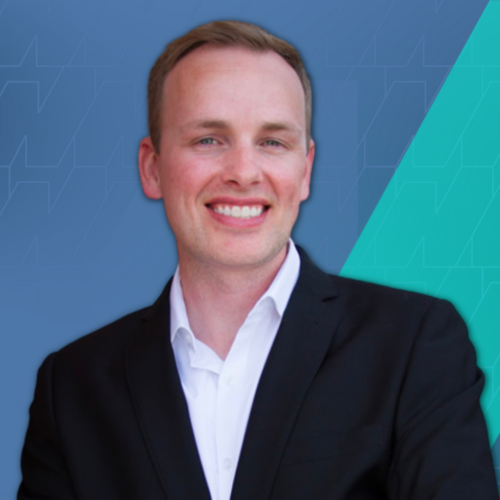
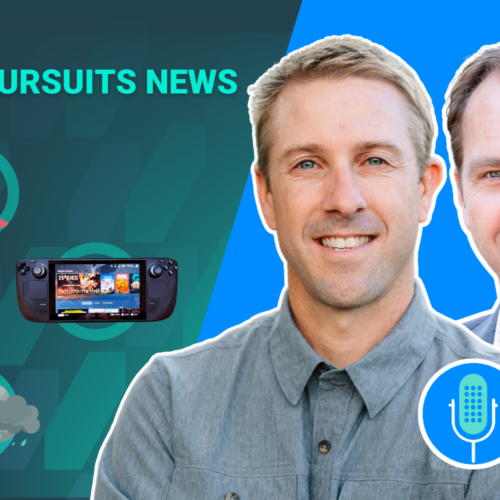
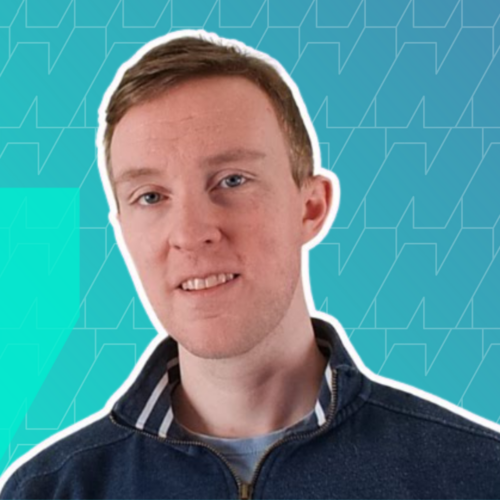
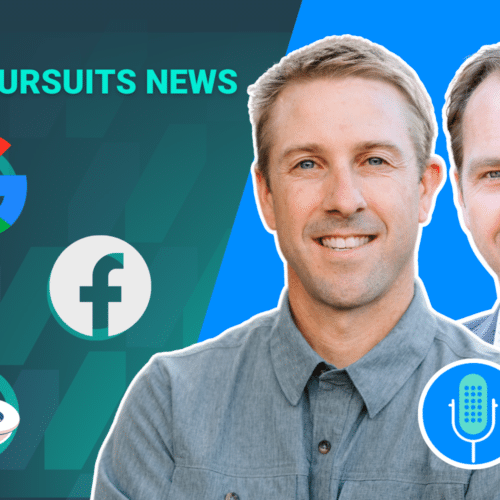







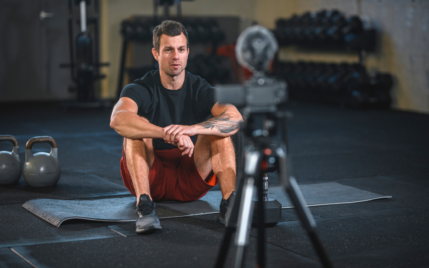




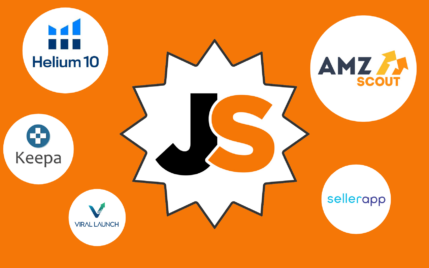
9 Comments
Conversation
Haven’t listened to the podcast yet…just the Ezoic ad at the start..
..a lot of people in your niche pursuit facebook group are unhappy with how much Ezoic damages site speed. I’ve removed it recently (despite it making me some good money) and seen good improvements in rankings and traffic.
..any thoughts on how to improve speed using Ezoic?
…I’ll listen to the rest of the Podcast now,
cheers
Just general site speed tips: use a CDN, image sizing/caching, WP-rocket or other caching plugins, Ezoic even has a site speed/caching tool you can use as well.
…Finished listening now,
Lasso sounds, and looks, very decent.
I rely heavily on AAWP at the moment, definitely tempted to give Lasso a go.
Does Lasso have any function whereby you can do a sitewide shortcode find and replace?
That would save me hours and hours if I were to switch from AAWP…and would make me even more likely to switch.
Amazing goal to have and really hope he achieves it!
Great work on the podcast too, really made for some great listening at work!
Thanks Marty!
Great interview. My thoughts for Matt:
– The pricing is too high in my opinion. Doesn’t matter if it’s a plugin or a SaaS product, it’s just too high.
– I think the interview came too early. Talking about ‘what Lasso is gonna do for you in the future’ doesn’t convince me to buy it today.
– The guarantee would be a perfect solution. If you are that confident about the plugin, you should do that. It would definitately make me buy it. Just make some very straight forward rules like “implement it to all of your pages within 7 days after purchase” or something like that.
Good luck!
Thanks Tim!
The virtue I value the most from you Spencer, by far, is your honesty. That’s what made me start following you a few years ago (changed my life, really).
This episode is a good example of that. A transparent conversation between two entrepreneurs. Felt like we were listening to a conversation you both were having at some local café. That’s priceless.
That’s why I love the internet. Gives me access to people like you.
Anyway, 2 questions:
1) Matt mentioned there are some new Amazon Associates reports (in beta?) that give you page/content specific metrics. Do you know anything about this? Couldn’t find any info.
2) For some time I’ve been thinking about having a consultation call, or email, with you, regarding how to manage work/family time. I have 2 young kids. I also have the feeling I want to do so many things I would need 10 lives to do them. I can’t find a solution to this dilemma. I know you have a big family and you’re still able to get things done. Is there any way I can talk to you about this.
Thanks in advance for your time.
Best regards,
Eric
Thanks for the kind feedback, Eric!
1. I actually don’t know anything about this, but haven’t researched much either.
2. I don’t really do consulting calls; however, feel free to reach out to me via email on the contact form on the site.